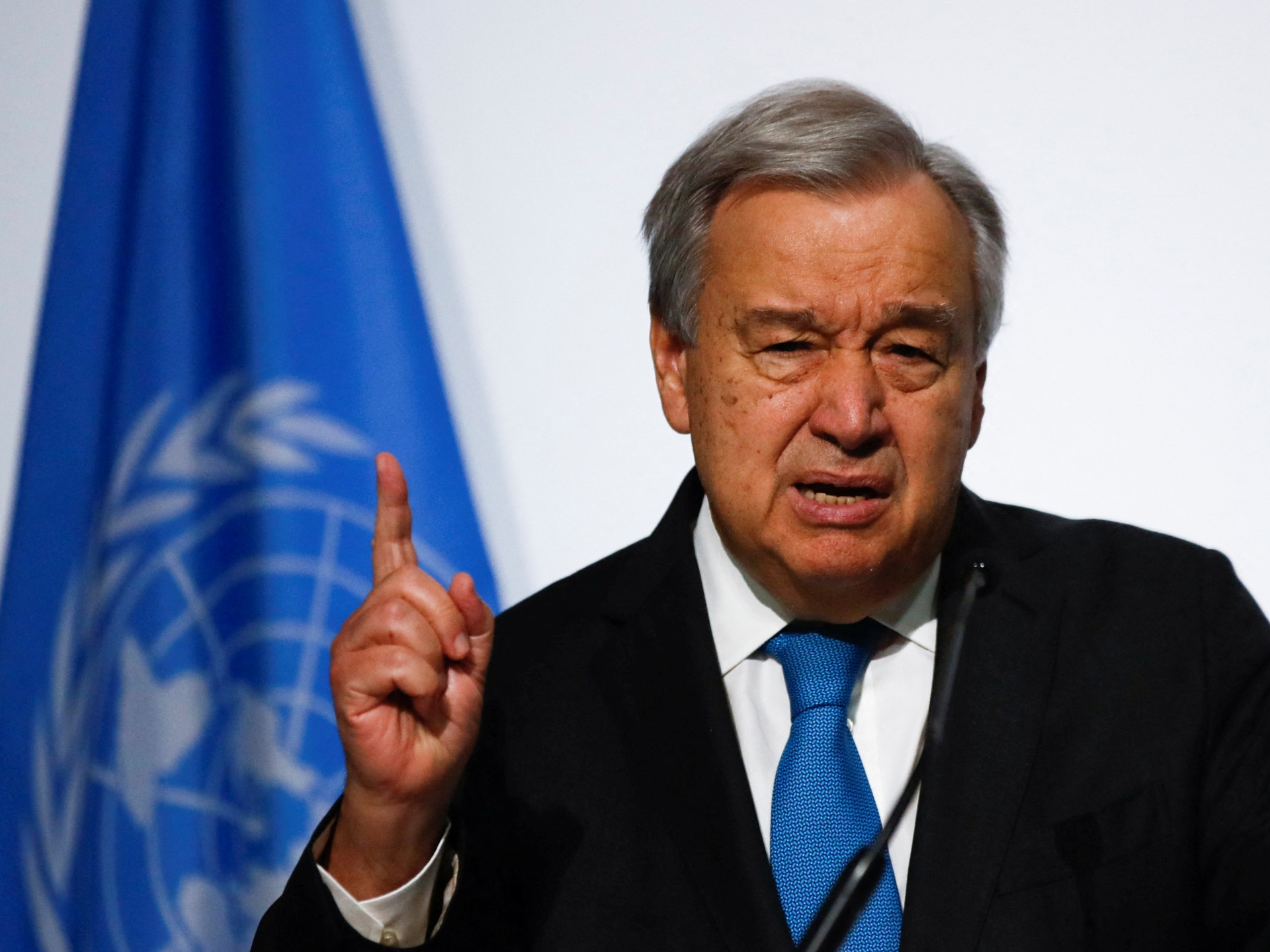Climate change, Iran sanctions, and worsening global poverty will also feature at the annual meeting of world leaders in New York this week.
Russia’s invasion of Ukraine and a global food crisis aggravated by the war will be the focus of world leaders when they convene at the United Nations in New York this week, a gathering that is unlikely to yield any progress towards ending the conflict.
“It would be naive to think that we are close to the possibility of a peace deal,” said UN Secretary-General Antonio Guterres on Saturday in advance of the high-level meeting of the 193 member states, which starts on Tuesday.
“The chances of a peace deal are minimal at the present moment.”
Geopolitical divides, hardened by the seven-month-old war, are likely to be on full display as the United States and Western allies compete with Russia for diplomatic influence.
To the world’s young people I say:
You are the strongest voices calling for change & for world leaders to wage peace instead of war.
As global leaders come to the #UNGA, I pledge to support young people to push them to work together for a more peaceful & tolerant world. pic.twitter.com/TvXTsFXfUm
— António Guterres (@antonioguterres) September 16, 2022
Moreover, the US ambassador to the UN, Linda Thomas-Greenfield, said there are no plans to meet Russian diplomats.
“They have not indicated that they have an interest in diplomacy. What they are interested in is continuing to raise this unprovoked war on Ukraine,” said Thomas-Greenfield.
She added while the war in Ukraine will be discussed, “we cannot ignore the rest of the world”.
Guterres said the geopolitical rifts were “the widest they have been since at least the Cold War” and “paralyzing the global response to the dramatic challenges we face” highlighting conflicts, climate, poverty, hunger, and inequality.
‘Huge tension’
Russia and Ukraine are major grain and fertiliser exporters and the UN has blamed the war for the worsening food crisis that was already fuelled by climate change and the COVID-19 pandemic.
The United States will co-host a food security summit with the European Union and the African Union on the sidelines of the UN gathering, along with a COVID-19 global action plan meeting and a replenishment conference for the Global Fund to Fight AIDS, Tuberculosis and Malaria.
“Underlying a lot of these meetings will be a huge amount of tension between Western countries and representatives of the Global South in particular,” said Richard Gowan, UN director at the International Crisis Group.
“There’s still a lot of ill feeling over issues such as the COVID vaccine rollout, climate financing … and now food prices. All these issues are driving major wedges amongst UN member states,” Gowan said.

Russia has been trying to chip away at its international isolation after nearly three-quarters of the UNGA voted to reprimand Moscow and demand it withdraw its troops within a week of its February 24 invasion of neighbouring Ukraine.
Russian Foreign Minister Sergey Lavrov, his US counterpart Antony Blinken, and French President Emmanuel Macron all visited African states in the past several months, vying for influence. Africa has been hard hit with a famine expected to be declared in Somalia in the coming months.
Macron intends to use his two-day visit to New York to lobby countries that have remained neutral in the war to try and bring them onside with the West, French officials said, with a focus on India, Gulf countries, Africa and some Latin American states.
In-person attendance
For the past two years, leaders were allowed to submit video statements because of pandemic restrictions, but this year they have to travel to New York City to speak in the UNGA chamber. Russian President Vladimir Putin and Chinese President Xi Jinping are sending their foreign ministers.
However, the UNGA agreed to allow Ukrainian President Volodymyr Zelenskyy to send a pre-recorded video statement. The decision was adopted with 101 votes in favour, seven against, and 19 abstentions. Ukrainian Foreign Minister Dmytro Kuleba is expected to attend.
Iranian President Ebrahim Raisi is also travelling to New York. While it is unlikely Tehran and Washington will overcome an impasse to salvage a 2015 nuclear pact soon, Iran will use the gathering to keep the diplomatic ball rolling by repeating its willingness to reach a sustainable deal.
